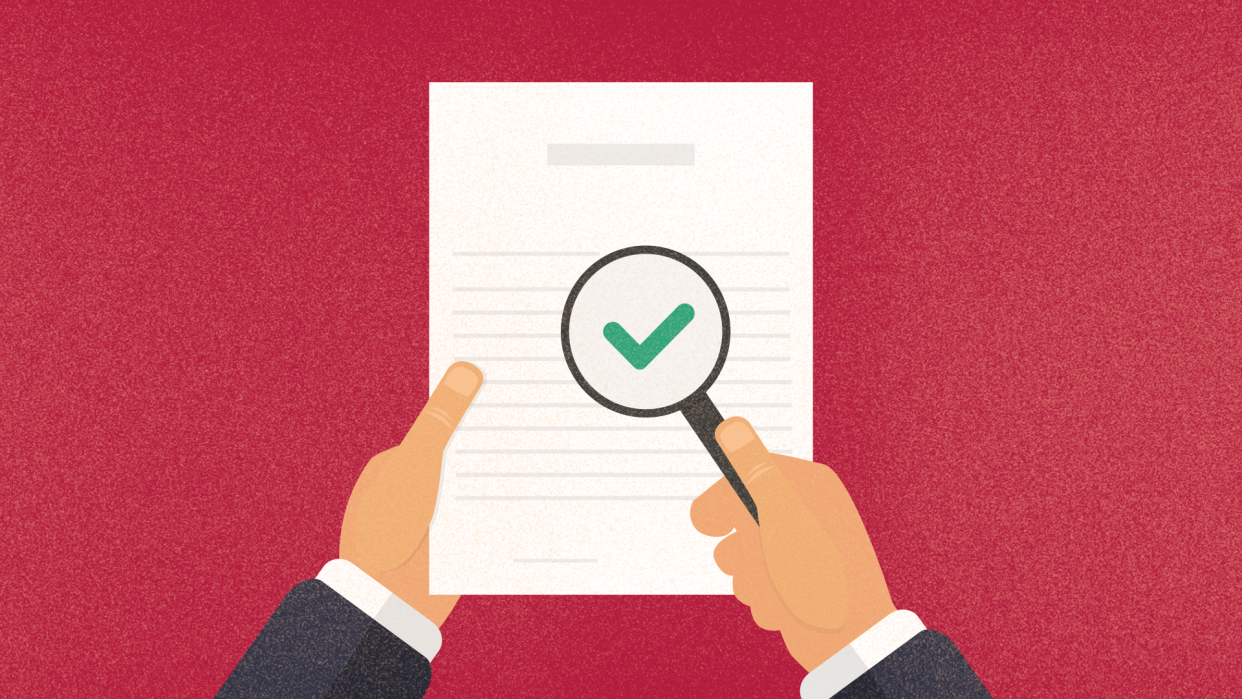What is a background check, and can it keep me from getting hired?

You did it — you made it through rounds of interviews, charmed the socks off a potential employer and are confident you’re about to get an offer. But there’s just one last thing standing between you and your dream job: a background check.
It’s a scary-sounding term, but this practice is fairly standard. In fact, according to HR.com, 94 percent of employers use some sort of check to determine someone’s eligibility for a role.
Related: Help! My boss found me on TikTok.
But before you panic about that speeding ticket you got in college or the time your RA found contraband in your dorm room, listen up. While background checks can reveal things like employment and education history, past addresses and criminal records, your minor traffic offense is likely not going to keep you from getting an offer.
“Typically, a company runs a background check when they are already preparing to hire you, so they’ve taken the time and spent the money to run the check,” HR professional Jazmine Wilkes tells Chegg. “We want to make sure you’re being honest about your employment experience and education. But primarily, it’s just to make sure we’re holding space for the safety parameters in place, not only for the organization but for the people we already have employed.”
Of course, different jobs have different requirements. If you’re applying for a position that involves driving and you have a suspended license or history of accidents on your record, that might pose a problem during the interview process. But background checks are typically specific to the position you’re applying for and cover just the last seven years of your history.
Related: You might get your next job on Twitter. I did.
“Even if you have a felony on your background check, if that felony is not harmful to the job you’re doing or the people you’re around, maybe they will say something like ‘Okay, it’s been six years. We can go ahead and let that go,” says Wilkes.
Sara Korolevich, a content marketing director at background check service GoodHire, tells Chegg her company’s main purpose is simply to get as much information as possible about a candidate who could potentially be joining the company.
“They just help the employer verify information and get insight into a candidate's history, whether it’s criminal, employment or educational, so they can make a more informed hiring decision,” she says.
Related: Your job interview just ended. Now do these 4 things.
And what if you do have something in your past that’s worth worrying about? Wilkes suggests bringing it up to the company yourself before it turns up as a red flag on your background check. If you’re comfortable going that route, she adds, it’s important to be honest.
“Typically, from what I’ve seen, candidates are forthcoming,” she says. “If they know something is on their record, they go ahead and share it beforehand to give their potential employer a heads-up.”
View the original article at Chegg Life and signup for the Chegg Life Newsletter
Related...

